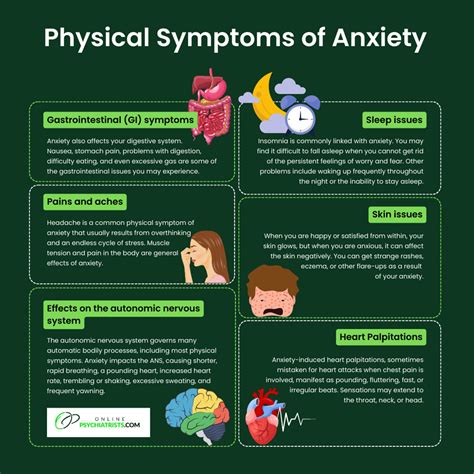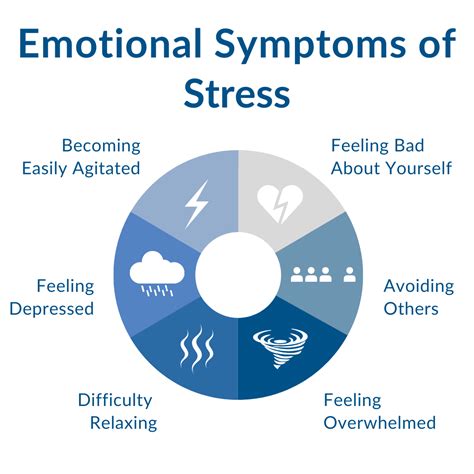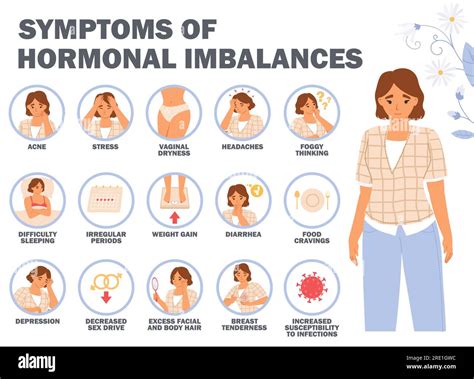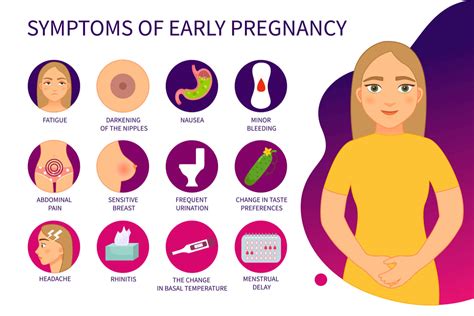Intro
Pregnancy is a life-changing experience that brings about numerous physical, emotional, and hormonal changes in a woman's body. The symptoms of pregnancy can vary from one woman to another, but there are some common signs that many women experience during this time. Understanding these symptoms can help women identify potential pregnancy and seek medical care early on.
The journey to motherhood is a unique and personal experience, and every woman's body reacts differently to the changes that occur during pregnancy. Some women may experience mild symptoms, while others may face more severe and debilitating effects. Regardless of the severity, it's essential to recognize the signs of pregnancy and take necessary steps to ensure a healthy pregnancy and a smooth transition into motherhood.
As the body prepares for the growth and development of a fetus, various physiological changes take place, leading to a range of symptoms. These symptoms can be broadly categorized into physical, emotional, and hormonal changes. By understanding these changes, women can better navigate the challenges of pregnancy and enjoy this special time in their lives.
Physical Symptoms of Pregnancy

Physical symptoms are often the most noticeable signs of pregnancy. These symptoms can include morning sickness, fatigue, breast tenderness, and food cravings. Morning sickness, also known as nausea and vomiting, is one of the most common physical symptoms of pregnancy. It's estimated that up to 85% of pregnant women experience some form of morning sickness, which can occur at any time of day, not just in the morning.
Other physical symptoms of pregnancy include:
- Fatigue: Feeling extremely tired or exhausted due to hormonal changes and increased blood volume.
- Breast tenderness: Hormonal fluctuations can cause breast tenderness, swelling, or darkening of the nipples.
- Food cravings: Many women experience strong cravings for specific foods, which can be due to hormonal changes or nutrient deficiencies.
- Bloating and cramping: Mild cramping and bloating are common during early pregnancy, as the embryo implants in the uterus.
Understanding Morning Sickness
Morning sickness is a complex phenomenon that's not fully understood. However, it's believed to be caused by the rapid increase in human chorionic gonadotropin (hCG) levels, which can stimulate the brain's vomiting center. Other contributing factors may include: * Estrogen levels: High estrogen levels can exacerbate morning sickness. * Blood sugar fluctuations: Changes in blood sugar levels can trigger nausea and vomiting. * Stress and anxiety: Emotional stress can worsen morning sickness symptoms.Emotional Symptoms of Pregnancy

Emotional symptoms are a common aspect of pregnancy, affecting up to 70% of women. These symptoms can include mood swings, anxiety, and depression. Hormonal fluctuations, particularly the increase in progesterone levels, can contribute to emotional changes. Additionally, the physical discomforts of pregnancy, such as morning sickness and fatigue, can exacerbate emotional symptoms.
Other emotional symptoms of pregnancy include:
- Mood swings: Rapid changes in mood, from happiness to irritability or sadness.
- Anxiety: Worries about the pregnancy, childbirth, or parenthood can cause anxiety.
- Depression: Some women may experience depressive symptoms, such as feelings of hopelessness or loss of interest in activities.
Coping with Emotional Symptoms
Managing emotional symptoms during pregnancy requires a combination of self-care, social support, and professional help when needed. Some strategies for coping with emotional symptoms include: * Practicing relaxation techniques, such as deep breathing, meditation, or yoga. * Engaging in regular exercise, like walking or swimming, to reduce stress and improve mood. * Building a support network of family, friends, and healthcare providers. * Seeking professional help, such as counseling or therapy, if symptoms persist or worsen.Hormonal Symptoms of Pregnancy

Hormonal changes are a hallmark of pregnancy, with significant increases in estrogen, progesterone, and hCG levels. These hormonal fluctuations can cause a range of symptoms, including morning sickness, breast tenderness, and mood swings. Understanding the role of hormones in pregnancy can help women better navigate the physical and emotional changes they experience.
Other hormonal symptoms of pregnancy include:
- Increased blood volume: Hormonal changes can cause blood vessels to dilate, leading to increased blood volume and potentially causing dizziness or lightheadedness.
- Skin changes: Hormonal fluctuations can cause skin changes, such as acne, darkening of the skin, or stretch marks.
- Hair and nail changes: Hormonal changes can cause hair and nail growth, as well as changes in texture or appearance.
Managing Hormonal Symptoms
While hormonal symptoms can be uncomfortable, there are ways to manage them. Some strategies for managing hormonal symptoms include: * Staying hydrated: Drinking plenty of water can help reduce the risk of dehydration and alleviate symptoms like morning sickness. * Eating a balanced diet: Consuming a healthy, balanced diet can help regulate hormonal changes and reduce the risk of nutrient deficiencies. * Getting enough rest: Prioritizing sleep and rest can help reduce fatigue and alleviate emotional symptoms.Pregnancy Symptoms by Trimester

Pregnancy symptoms can vary by trimester, with different symptoms emerging at different stages of pregnancy. Understanding the typical symptoms of each trimester can help women better navigate their pregnancy journey.
- First trimester (weeks 1-12): Morning sickness, fatigue, breast tenderness, and food cravings are common during the first trimester.
- Second trimester (weeks 13-26): Symptoms like morning sickness and fatigue may subside, while new symptoms like back pain, Braxton Hicks contractions, and skin changes may emerge.
- Third trimester (weeks 27-40): Symptoms like back pain, pelvic pressure, and difficulty sleeping may worsen, while new symptoms like contractions and nesting instincts may appear.
Preparing for Each Trimester
Preparing for each trimester can help women better manage their symptoms and ensure a healthy pregnancy. Some strategies for preparing for each trimester include: * First trimester: Focus on maintaining a healthy diet, staying hydrated, and getting enough rest to manage morning sickness and fatigue. * Second trimester: Engage in regular exercise, practice relaxation techniques, and build a support network to manage back pain and emotional symptoms. * Third trimester: Prioritize rest, stay hydrated, and engage in activities that promote relaxation and stress reduction to manage back pain and prepare for childbirth.What are the most common symptoms of pregnancy?
+The most common symptoms of pregnancy include morning sickness, fatigue, breast tenderness, and food cravings. However, every woman's experience is unique, and not all women will experience all of these symptoms.
How long do pregnancy symptoms last?
+Pregnancy symptoms can vary in duration, but most symptoms subside after the first trimester. However, some symptoms like back pain and pelvic pressure may worsen as the pregnancy progresses.
Can pregnancy symptoms be managed?
+Yes, pregnancy symptoms can be managed through a combination of self-care, social support, and professional help when needed. Strategies like maintaining a healthy diet, staying hydrated, and engaging in regular exercise can help alleviate symptoms.
As women navigate the journey of pregnancy, it's essential to remember that every experience is unique, and not all women will experience the same symptoms. By understanding the physical, emotional, and hormonal changes that occur during pregnancy, women can better manage their symptoms and ensure a healthy pregnancy. If you're experiencing symptoms of pregnancy, don't hesitate to reach out to your healthcare provider for guidance and support. Share your experiences and tips for managing pregnancy symptoms in the comments below, and help other women navigate this special time in their lives.
